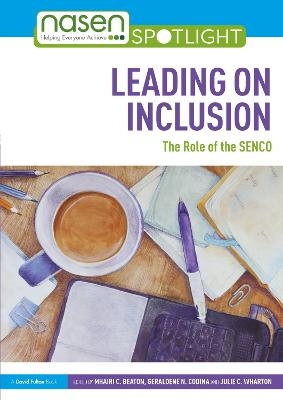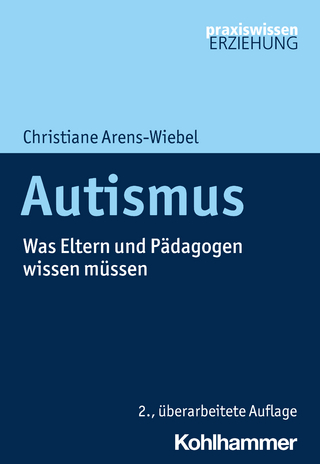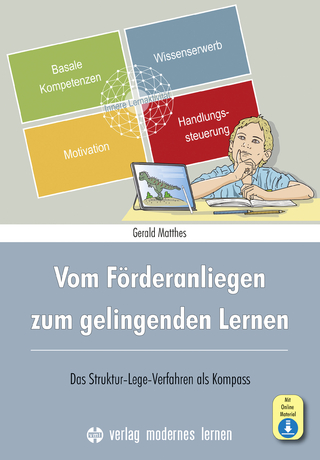
Leading on Inclusion
Routledge (Verlag)
978-0-367-42050-5 (ISBN)
This comprehensive resource provides a range of perspectives on inclusion, giving Special Educational Needs Co-ordinators (SENCOs) the opportunity to consider the principles and practice that underpin their leadership role.
Offering a blend of academic and professional knowledge, each chapter explores different aspects of the role of the SENCO and supports areas that will be considered as part of the National Award for SENCOs. A variety of essential topics are covered, from the importance of SEND provision and multi-disciplinary practice, to the role of the SENCO and leadership.
Key features of this book include:
Contributions by leaders of the National Award for Special Educational Needs Co-ordinators working with trainee SENCOs across the country
A focus on encouraging SENCOs to think deeply about their own individual practice through engagement with cutting-edge research
A flexible structure that can be read as a whole, or dipped in and out of as professional learning needs require
This book provides an opportunity for readers to engage with a multiplicity of voices and approaches, allowing them to critically explore their role as leaders of SEND provision in schools. It is an invaluable resource both for students and those already within the role of Special Educational Needs Co-ordinator.
Mhairi C. Beaton is a reader at the Carnegie School of Education at Leeds Beckett University, where she leads the MA in Inclusive Practice in Education. Her research focus lies at the interface of inclusion, teacher education and student voice. Geraldene N. Codina is a senior lecturer at the University of Derby. She is the programme leader for the National Award for SENCOs, co-convenes the Derby City SENCO Forum and chairs the Derby Opportunity Area SEND Project Management Group. Prior to working in higher education, Geraldene was a SENCO. Julie C. Wharton is the course leader for the National Award for Special Educational Needs (SEN) Coordination at the University of Winchester. Julie joined the university in 2014, having spent seven years working as a SEND Inspector in Southampton. Prior to this she was an Advanced Skills Teacher for SEN.
Why SEND is important Introduction Inclusive relationships – creating the space for each other The Language of SEND: Implications for the SENCO The SENCO as a leader of professional learning for inclusive practice The Future of SEND in England – What next? The leadership role of the SENCO Inclusion and school exclusion – Key Issues for SENCOs in England Inclusion in the Early Years Social Emotional and Mental Health Pupils with Social, Emotional and Mental Health (SEMH) Needs: The role of the Special Educational Needs Coordinator (SENCO) in meeting the Inclusion Challenge Medical Conditions Person-Centred Approaches The SENCO Role: Leading on Assessment Education, Health Care Plans SENCOS’ leadership role in multidisciplinary practice Multi-professional Meetings: SENCOs reflections on the empty chairs at the table Working with Families Working in Partnership with Parents SENCOs and Social Workers: Working together Hearing their Voices: the role of SENCOs in facilitating the participation of all learners Developing SENCO resilience: understanding and meeting the challenge of the role
| Erscheinungsdatum | 23.04.2021 |
|---|---|
| Reihe/Serie | nasen spotlight |
| Zusatzinfo | 5 Tables, black and white; 9 Line drawings, black and white; 7 Halftones, black and white; 16 Illustrations, black and white |
| Verlagsort | London |
| Sprache | englisch |
| Maße | 210 x 297 mm |
| Gewicht | 526 g |
| Themenwelt | Sozialwissenschaften ► Pädagogik ► Sonder-, Heil- und Förderpädagogik |
| ISBN-10 | 0-367-42050-3 / 0367420503 |
| ISBN-13 | 978-0-367-42050-5 / 9780367420505 |
| Zustand | Neuware |
| Haben Sie eine Frage zum Produkt? |
aus dem Bereich


